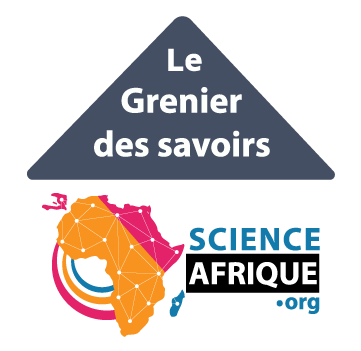Volume 2, numéro 1 – 2023 : Enseigner et apprendre les langues africaines ou en langues africaines
About linguistics for (social) development. Issues and challenges
Léonie MÉTANGMO-TATOU
It’s patently obvious that language and communication are central in performing any human activity. Development projects being human activities, verbal communication and mutual intelligibility are major tools in the process of creating, disseminating, and sharing technical messages. The goal is to achieve the essential SDGs in terms of promotion of health, nutrition, education, environment, gender, among others.
It can be observed that the vision of development remains unfortunately too often technocratic. The theory of Linguistics for development (Métangmo-Tatou, 1999, 2003, 2019; Tourneux, 2009; Agresti, 2021) defends a holistic approach of development involving, among other things, human and social parameters. We consider that the appropriation/reappropriation of relevant knowledge which necessarily accompanies human progress constitutes a complex process intimately linked to cultural and linguistic environment. Unfortunately, in Africa, because of historical and political factors, the diffusion of knowledge is mainly carried out in French and English, the main official languages, even though the literacy rates in these languages remains low, especially in rural areas. In that context, the accessibility, and the real impact of messages – especially technical messages – becomes largely questionable. We assume that the appropriation of new knowledge, especially within the fields linked to development, appears to be significantly more efficient through an inclusive communication involving local languages. This is a prerequisite to conduct a development program successfully (Métangmo-Tatou, 2003, 2008, 2019 ; Tourneux, 2006 ; Bearth, 2008 ; ONU, 2010 ; Zouogbo, 2022, among others). This approach should be considered as a sine qua non condition to reduce the tremendous gap between the expert’s discourse and the population so to reach a real and lasting impact on the target populations. The question of education is also at the heart of our approach, as we plan to produce didactic resources for local languages based on local knowledge, which has long been excluded from scientific discourse.
Moreover, it is the more efficient way to repair cognitive injustice experienced by people which languages have been marginalized.
The few examples that follow and that we choose in different fields will allow us to illustrate our point. It’s necessary, for example to explain to housewives, to farmers, etc. in an inclusive bilingual approach, what is pollution, and which are the challenges of the fight against this new environmental phenomenon (F. Métangmo-Tatou and Mohamadou, 2021).
Taking the case of health, we know that it stands out as one of the major drivers for sustainable development. Meanwhile, communication is recognized as the main tool for the caregiver in his/her mission: relieve the patient. Unfortunately, communication is not always managed optimally, this leading to multifaceted issues. Besides, we find the scientific literacy in English legitimately uses the concept of “suboptimal communication”[1] (SC).
For all these reasons, in the Adamawa region of Cameroon for instance, Fulfulde -together with French – should be used for information campaigns since Fulfulde is acknowledged as the main lingua franca in that area, French assuming the role of official language. The implementation of linguistic engineering (Diki-Kidiri & al. dir. 2008) should then allow the creation of new items to name new scientific or technical realities in that field. Besides, experts should also consider multi/interculturality of most African contexts to help overcome the cultural and linguistic challenges.
References
Agresti, Giovani. 2021. Développement. Langage et société, HS1, 101-104. https://doi.org/10.3917/ls.hs01.0102
Bearth, Thomas. 2008. Language as key to understanding development from a local perspectives. A case study from Ivory Coast. In Tourneux, Henry (dir.), Langues, cultures et développement en Afrique (35-116).
Diki Kidiri, Marcel (dir.). 2008. Le vocabulaire scientifique dans les langues africaines. Pour une approche culturelle de la terminologie. Paris : Karthala.
Métangmo-Tatou, Franck and Mohamadou, Ousmanou. 2021. Un biodigesteur pour une énergie propre et une agriculture durable. Communication présentée au colloque Local Resource Exploitation (LOREXP), Université de Ngaoundéré.
Métangmo-Tatou, Léonie. 1999. Linguistique et développement : un défi à relever. Communication à la Conférence internationale sur « L’université et son environnement », Université de Ngaoundéré, 26-27 novembre 1999.
Métangmo-Tatou, Léonie. 2003. La koinè peule du Cameroun septentrional et les enjeux du développement. African Journal of Applied Linguistics, 4, 119-138.
Métangmo-Tatou, Léonie. 2019. Pour une linguistique du développement. Essai d’épistémologie sur l’émergence d’un nouveau paradigme en sciences du langage. Québec : Éditions Science et bien commun.
ONU. 2010. La communication pour le développement. Accroître l’efficacité des Nations Unies. New-York : UNICEF, UNESCO, PNUD/David Dahmen.
Tourneux, Henry. 2009. Linguistique et développement Et si, pour sortir du malentendu, le dialogue interculturel avait besoin d’un nouvel outil? La Grande Oreille, 39, 39-41.
Zouogbo, Jean-Philippe (dir.). 2022. Linguistique pour le développement – concepts, contextes et empiries. Paris : Éditions des Archives contemporaines.
Léonie MÉTANGMO-TATOU
Léonie Tatou est professeure des universités HDR en sciences du langage à l’Université de Ngaoundéré (Cameroun). Elle est fondatrice et responsable du laboratoire Langues, Dynamiques et Usages (LADYRUS). Ses travaux de recherche ainsi que son engagement social s’articulent autour des dynamiques multilingues et multiculturelles observables en Afrique et de la problématique du développement durable par le biais de la formation du capital humain et de la circulation des sciences et des savoirs, tout cela en lien avec la dynamique des langues et des cultures. Elle s’intéresse particulièrement à la mise en cohérence de ces dynamiques avec la problématique du développement humain et la promotion de la justice cognitive.
Elle est chercheuse associée au CIRAM (Centre international de recherche sur l’Afrique et le Moyen Orient de l’Université Laval, Canada) et membre de plusieurs organisations savantes. Elle a obtenu la distinction de Chevalier dans l’Ordre national de la Valeur. Parmi ses livres récents, Pour une linguistique du développement (2020) en libre accès aux Éditions science et bien commun et, en collaboration avec Joseph Fometeu et Philippe Briand, La langue et le droit (L’Harmattan, 2018).
- Consequences of suboptimal communication for patients with limited English proficiency in the intensive care unit. https://mayoclinic.pure.elsevier.com/en/publications/consequences-of-suboptimal-communication-for-patients ↵
